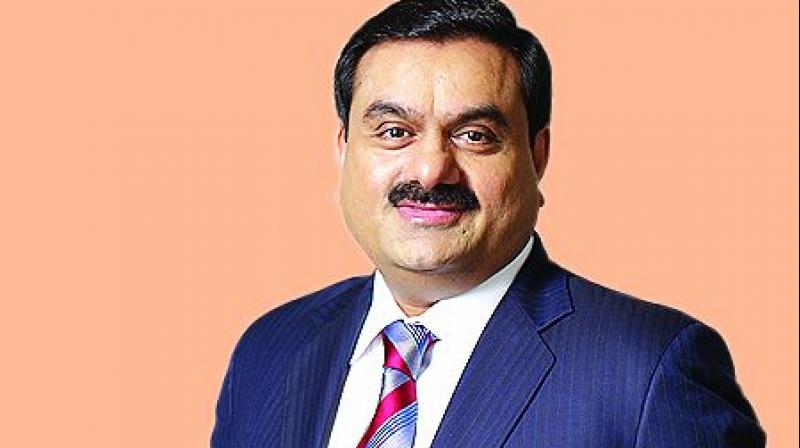Adani eyes data storage with Rs 70,000-crore parks
And when Adani’s group decided to get involved in operations of airports, it bid almost double its main competitors in some cases.

A string of successful bets on ports, mining and commodities helped transform Gautam Adani from a nondescript diamond trader into a tycoon with a net worth of almost $10 billion.
Now the businessman is setting his sights on what he believes could become another big money maker: Selling data storage services to companies such as Amazon.com Inc. and Alphabet Inc’s Google.
The government is weighing a new law that would require data to be stored locally, and his conglomerate Adani Enterprises Ltd has said it expects to invest Rs 70,000 crore ($10.2 billion) to build data parks in a southern state over the next two decades. The billionaire’s hope is to capitalise on demand from foreign technology companies, who are expanding in India as the use of smartphones and Internet surges.
If the proposed law goes through “it will explode data storage requirements, and that will need capacity,” Adani said in a rare interview in New Delhi. “This will be a multi-billion-dollar project that will bring in the Googles and the Amazons of the world.”
It’s an approach that’s been a hallmark of Adani’s empire: Pick a hot new industry --especially one favoured by the government--build the infrastructure, and keep going till you hit the top.
When the government pushed for gas projects in cities for cooking and transportation, Adani’s group bid for and won many licences, a move that could make it the biggest player in gas retailing. When Prime Minister Narendra Modi pledged to develop local manufacturing of defence equipment, Adani quickly built the capacity to supply the military by going on an aggressive shopping spree of defence contractors.
And when Adani’s group decided to get involved in operations of airports, it bid almost double its main competitors in some cases. A clean sweep in the bidding process is set to add six airfields to the business overnight.
“Our main goal is nation building through infrastructure,” the billionaire said. “The Adani Group has always focused on businesses in line (with) the government’s vision.”
Shares of Adani Enterprises Ltd, the flagship company, closed 1.15 per cent higher at Rs 141 on Thursday in Mumbai. The stock has declined 12 per cent this year, compared with a 7.6 per cent gain in the Sensex.
Adani, 57, built his empire around heavily regulated businesses of coal mining, electricity and ports, a reflection of his ability to navigate different political parties and governments in states and at the Centre.
The focus of his empire is the 15,000 hectare industrial zone at Mundra in Gujarat, which houses the group’s largest port and the country’s largest power plant.
As in other infrastructure businesses, by expanding into data centres, the businessman would be entering a space that demands large investment. He would also have to contend with competition from other large Indian players that decide to make a big push into the industry.
One of the big supporters of data localization has been Adani’s fellow billionaire Mukesh Ambani, Asia’s richest man. Ambani has argued that India’s data must be controlled and owned by Indians, and not by global corporations. Ambani’s younger brother, Anil, has also built data centres in India.
A draft of India’s 2018 Personal Data Protection Bill mandates storage of personal data on a server or in a data centre located in the country, citing the need to protect the autonomy of individuals and their personal data. The bill would need to be approved by lawmakers.
— Bloomberg

